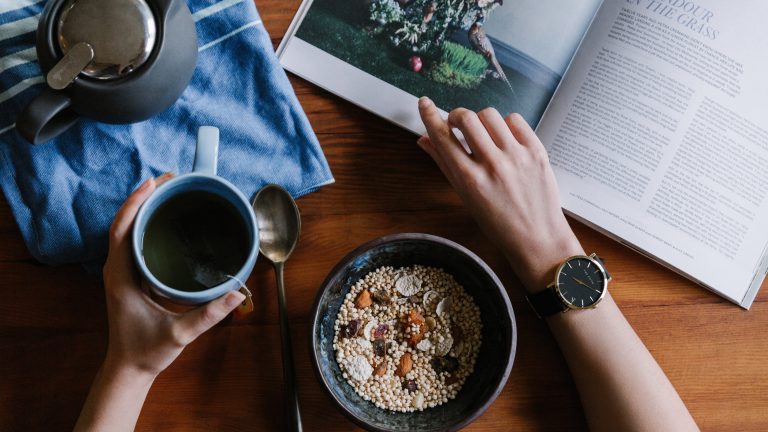Do you suffer from the afternoon dip? That point after lunch when your brain loses all form of motivation? If you do, here are 5 tips based on my personal experience, which you may find useful.
We all have certain points of the day when we work our best. For me, it’s the morning. I like to rise early and work solidly through till lunch with minimum distractions. Then it would hit: the afternoon dip where my once productive mind would transform into mush allowing me to discover all the weird and wonderful hidden corners of YouTube. This dip would last for hours and before I knew it my stomach would grumble and it would be dinner, leaving me with little time afterwards to pick up from where I left off.
If you can relate, then I would like to share some of my solutions which helped me overcome my unproductive phases, in hope that you too will find them useful.

1. Set a strict lunch break
While this may seem obvious, I always fell into the trap of letting my body decide how long of a break it needed. Consequently, ten minutes would turn into a few hours putting me far behind schedule.
To overcome this, try allowing yourself an hour so that you can stick to a regular schedule and maintain your productivity throughout the day. What really helped me was setting a timer for fifty minutes which gave me ten minutes to finish up, grab a coffee and head back to work, so that I was ready to start when my hour was finally up.

2. Remove distractions
When your afternoon dip hits you are at your most vulnerable to distractions. Without going to the extreme of locking your phone away in a cookie jar and placing it out of reach, why not pop it on silent and place it face down behind your laptop so that all too familiar “ping” won’t shatter your concentration.
As well as this, why not use the last ten minutes of your lunch break to have a bit of a tidy up? I don’t mean a full spring clean Marie Kondo style but merely cast your eyes around your workspace and assess whether it is suitable and enticing enough to continue your work. Removing the clutter from your desk, leaving only your bare necessities within reach may make it easier to refocus your mind after your break.

3. Save the easier tasks until your dip
There’s nothing worse than trying to tackle the hardest tasks when you are at your least productive. During these stints, most of us find that we have little energy and concentration, making us more likely to give up, especially if the tasks are complex.
To prevent this from happening, leave the easiest tasks till last when you are at your least productive. These could be general administrative tasks such as answering emails. By tackling these later, it enables your productivity to be sustained as your more lethargic state of mind can still manage the tasks at hand.
As a social science postgraduate, I have many essays that need to be researched and written. Personally, I find writing the hardest, and therefore, try and do this in the morning when I am more alert and creative. I usually leave research until the afternoon as this has more of a clear structure which gives my mind the extra steering that it needs.

4. Reward yourself
Make sure that you have something to look forward to at the end of each day providing you with that much needed motivation to get you through your dip. This leaves you to enjoy your chosen activity relatively stress and guilt-free.
A movie night or a bit of home baking are always a good shout. Alternatively, a call or skype to friends of family is also a good way to relax and unwind after a day of work.

5. Factor your dip into your day
If none of these tips seem strong enough to tackle your afternoon dip, then try and factor it into your schedule.
If you’re a morning person then make the most of it! Get up early and work until early afternoon when your dip may strike. Finish at two, three or four pm, so that your dip is transformed into your after-work slump, a natural occurrence that doesn’t need to be stopped.
If you’re more of an evening person get up later and finish at eight, nine or ten pm.
By working around your most unproductive period rather than through it, your body can rest when it needs to, without hindering your productivity.
